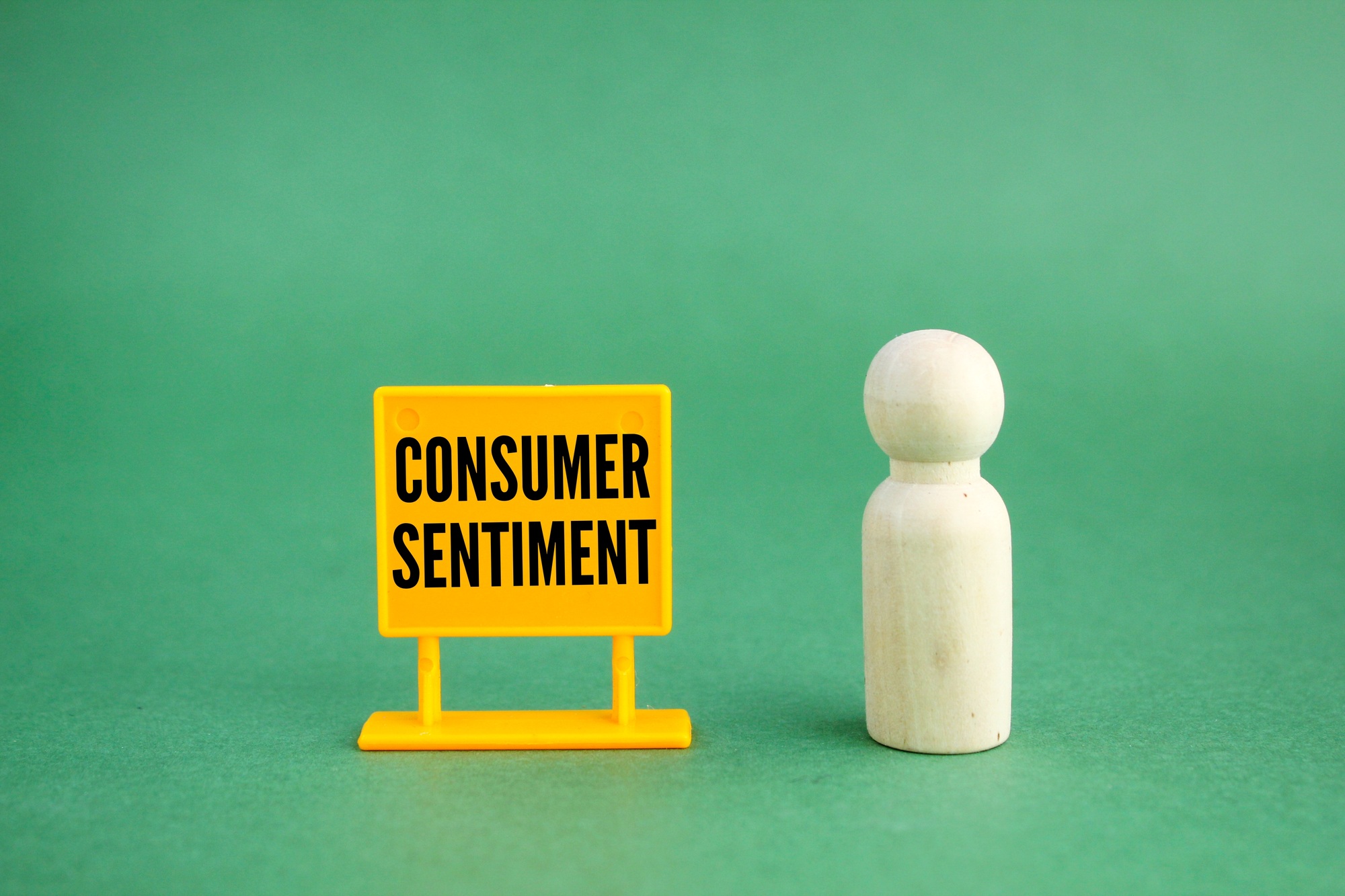Key Takeaways

- Understanding consumer expectations is essential for business success, especially in a competitive retail environment.
- Consumers anticipate high-quality products, reliable service, and personalized experiences, influenced by past experiences and market trends.
- Meeting evolving consumer expectations boosts brand loyalty and customer satisfaction, potentially increasing sales by over 30%.
- Factors like market trends, brand reputation, and product quality shape consumer expectations, necessitating proactive adaptation by businesses.
- Employing tools like surveys and social media analysis can effectively measure and improve consumer expectations, fostering long-term engagement.
- Consistently aligning your offerings with consumer needs enhances trust and establishes a loyal customer base, crucial for sustained business growth.
In today’s fast-paced market, understanding consumer expectations is crucial for any business striving to succeed. With endless options at their fingertips, consumers demand not just quality products but also exceptional experiences. They want brands that listen, engage, and adapt to their needs, making it essential for you to stay ahead of these shifting expectations.
As technology advances and competition intensifies, meeting and exceeding these expectations has become a key differentiator. Whether it’s personalized service or swift responses, your ability to anticipate what consumers want can set you apart. This article delves into the evolving landscape of consumer expectations and offers insights on how to align your strategies to foster loyalty and drive growth.
Understanding Consumer Expectations

Consumer expectations encompass the beliefs and assumptions consumers hold about products, services, and overall brand experiences. For small businesses, grasping these expectations proves essential for success in a competitive retail environment.
Definition of Consumer Expectations
Consumer expectations refer to the anticipated outcomes related to a product or service. They arise from prior experiences, word-of-mouth, advertising, and societal trends. You can expect consumers to demand high-quality products, reliable customer service, and personalized experiences. Understanding this definition helps you align your offerings with what your customers desire.
Importance of Consumer Expectations
Consumer expectations drive purchasing decisions and brand loyalty. Meeting these expectations enhances your brand’s reputation and fosters repeat business. You may differentiate your small business from competitors by addressing specific consumer needs and providing exceptional experiences. Moreover, recognizing evolving expectations allows you to adapt your strategies, ensuring relevance in the retail sector. Surveys show that businesses that align closely with consumer expectations can increase customer satisfaction by over 30%, directly impacting sales and growth.
Factors Influencing Consumer Expectations

Understanding consumer expectations requires attention to various influencing factors that shape perceptions in the retail environment.
Market Trends
Market trends significantly affect consumer expectations. You need to stay updated on changes in consumer behavior and preferences. For instance, trends indicate a growing demand for sustainability and ethical sourcing in products. Adapting your small business to meet these trends can create a positive impression and attract a loyal customer base. Tracking these trends allows you to align your offerings with consumer interests, increasing engagement.
Brand Reputation
Brand reputation plays a crucial role in shaping consumer expectations. When your small business builds and maintains a strong reputation, customers expect high-quality products and outstanding customer service. Positive reviews and word-of-mouth recommendations reinforce these expectations. Consistently delivering on promises can enhance trust and loyalty, making it vital to monitor and manage your brand’s online presence effectively.
Product Quality
Product quality remains at the forefront of consumer expectations. Customers expect products to meet certain standards regarding performance, durability, and reliability. For your small business, ensuring high-quality offerings can differentiate you from competitors. Investing in quality control processes and sourcing materials from reputable suppliers helps meet these expectations, leading to increased customer satisfaction and repeat purchases.
Measuring Consumer Expectations

Measuring consumer expectations is vital for small businesses in the retail sector. It helps you understand customer needs and align your offerings accordingly.
Surveys and Feedback
Surveys and feedback mechanisms serve as effective tools for gauging consumer expectations. Consider implementing the Survey of Consumer Expectations (SCE) from the Federal Reserve Bank of New York. This monthly online survey collects insights on inflation, household finance, and labor and housing markets. Analyzing SCE findings can guide your understanding of consumer behavior, impacting your business strategies.
Utilize customer surveys to measure satisfaction and expectations directly. Metrics such as Net Promoter Score (NPS), Customer Satisfaction Score (CSAT), and Customer Effort Score (CES) provide quantifiable data you can leverage for improvement. These insights enable you to identify areas where your small business can enhance experiences, fostering loyalty and repeat patronage.
Social Media Analysis
Social media analysis offers an additional dimension to understanding consumer expectations. Observing conversations and comments about your brand on platforms like Facebook, Instagram, and Twitter reveals real-time customer sentiments. This data helps you adapt your approach, responding to trends and preferences as they emerge.
Engaging actively with your audience on social media not only builds trust but also signals that you value their input. By monitoring mentions, likes, and shares, you can gather feedback on new products or services. This proactive stance can improve consumer satisfaction, giving your small business a competitive edge in the retail market.
Impact of Consumer Expectations on Businesses

Consumer expectations shape how you engage with customers. Meeting these expectations can significantly influence your small business’s success in the retail market.
Customer Satisfaction
Customer satisfaction hinges on understanding what your audience values. Engaging with customers regularly through surveys or social media can provide insights into their needs and preferences. Prioritizing exceptional service leads to satisfied customers and increases the likelihood of repeat purchases. According to recent data, businesses that align closely with consumer expectations can boost satisfaction levels by over 30%. By tailoring your products and services to meet these expectations, you enhance the overall customer experience.
Brand Loyalty
Brand loyalty develops when you consistently meet or exceed consumer expectations. Satisfied customers become more likely to return and recommend your business to others. Establishing trust through reliability and quality builds a loyal customer base. In today’s competitive retail environment, small businesses that focus on personalized experiences and exceptional service create lasting connections with their customers. Meeting evolving expectations aids in retaining loyalty and driving growth.
Conclusion

Understanding consumer expectations is vital for your business’s success. By actively listening to your customers and adapting to their needs, you create a strong foundation for loyalty and growth. Staying ahead of market trends and maintaining high product quality can set you apart from the competition.
Utilizing feedback mechanisms like surveys and social media analysis will help you gauge customer sentiments and refine your strategies. Remember that exceptional service and personalized experiences are key to fostering lasting connections. Prioritizing these elements not only enhances customer satisfaction but also encourages repeat business. Embrace the evolving landscape of consumer expectations and watch your brand thrive.
Frequently Asked Questions

What are consumer expectations?
Consumer expectations are the beliefs and assumptions that people hold regarding products, services, and the overall experiences a brand offers. They are shaped by previous experiences, advertising, word-of-mouth, and broader societal trends.
Why are consumer expectations important for businesses?
Meeting consumer expectations is crucial for success, driving purchasing decisions and fostering brand loyalty. It enhances a brand’s reputation and encourages repeat business, which is vital for growth in a competitive market.
How can businesses measure consumer expectations?
Businesses can measure consumer expectations using surveys, feedback tools, and metrics like Net Promoter Score (NPS), Customer Satisfaction Score (CSAT), and Customer Effort Score (CES). Social media analysis is also effective for understanding real-time customer sentiments.
What factors influence consumer expectations?
Factors influencing consumer expectations include market trends, brand reputation, and product quality. Staying updated on these elements is key to attracting and retaining a loyal customer base in today’s marketplace.
How does meeting consumer expectations impact growth?
When businesses meet consumer expectations, they often see increased customer satisfaction, which can boost sales and drive growth. A direct correlation exists between understanding consumer needs and achieving better business performance.
What role does technology play in understanding consumer expectations?
Technology plays a significant role by enabling businesses to gather data through surveys, social media, and analytics. This information helps them to adapt to evolving consumer needs and stay competitive in the market.
How can small businesses enhance consumer experiences?
Small businesses can enhance consumer experiences by prioritizing exceptional service, personalizing interactions, and actively listening to customer feedback. Meeting or exceeding expectations leads to greater brand loyalty and repeat purchases.
Image Via Envato



